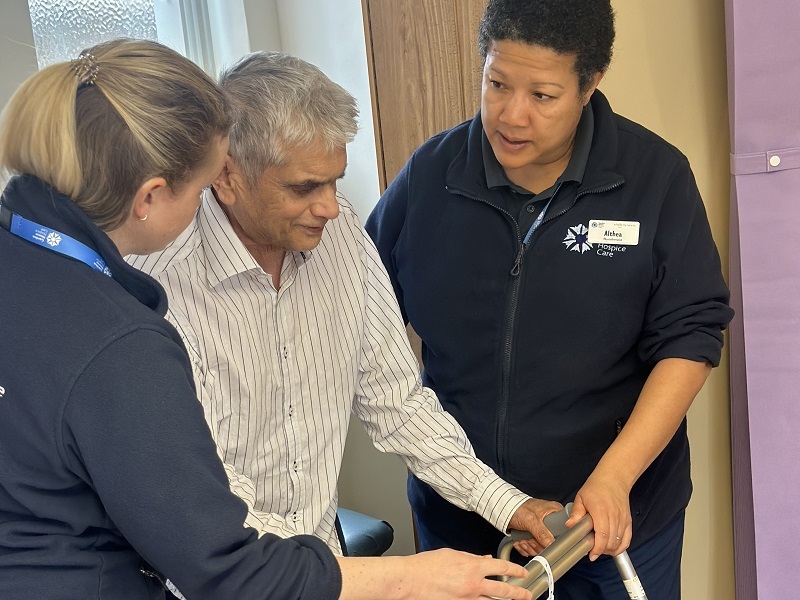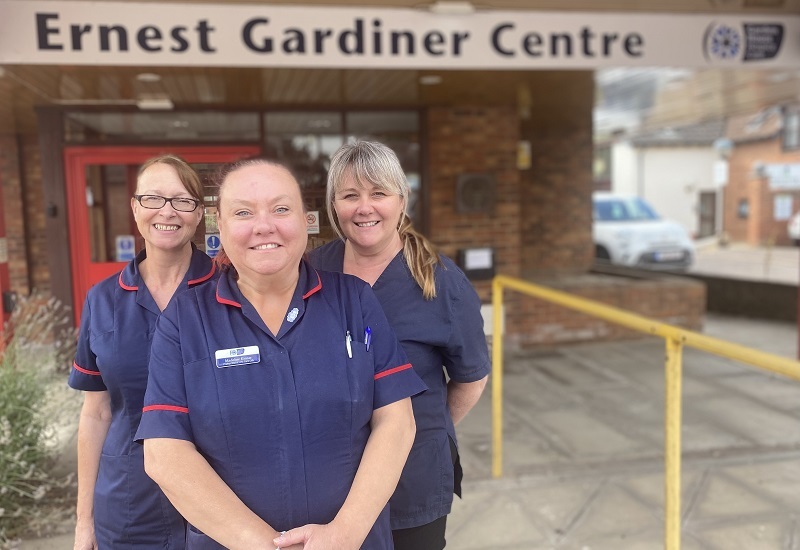
Hospice launches new frailty service to ease pressure on NHS this winter
Garden House Hospice Care is launching a ground-breaking service that will reduce admissions to hospital this winter and tackle the nationwide issue of inequality of access to hospices.
From 2nd January 2024, we will use our specialist skills in symptom control to support people living with frailty in the community. Our new service will add capacity into the health system and save the NHS approximately £2million a year.
In the UK, hundreds of thousands of people have frailty, which means living with multiple long-term conditions that require careful monitoring and stabilising through medication. These conditions impact a person's ability to live to their full potential. Maintaining their independence and mobility is critical. Regular symptoms associated with renal, respiratory and heart conditions can include infections, breathlessness, pain and minor health problems such as urinary tract infections which can be harder to recover from, often resulting in regular visits to GPs or A&E. Frailty is believed to be one of the major public health challenges of the 21st century.
Meanwhile, people without cancer are still less likely to benefit from the services hospices provide. At the Hospice, 70% of our patients have cancer. Many of those failing to access hospices - thought to be thousands of people in North Hertfordshire alone - have frailty.
To tackle the interconnecting issues, staff at the Hospice have developed a new frailty service aimed at those with moderate to severe frailty. It is a first for hospices.
The Frailty Service delivered by Garden House Hospice Care will:
- Utilise the skills of the Hospice's clinicians (for example nurses, physiotherapist and occupational therapists) to support people with frailty with these symptoms and more, through treatment at home or in the Hospice, outpatient clinics and classes, and education.
- See a nurse visiting the local hospital every day to identify patients who are eligible for their support either at home or in the Hospice, instead of the being admitted to hospital.
- Launch an ambulatory service, so that patients can be treated as a day case within the Hospice Inpatient Unit rather than a hospital stay.
- Ensure those living with frailty have a clear plan and pathway for support, so they know who to contact at the Hospice before speaking to their doctor or attending A&E.
The Frailty Service will be provided free of charge and the charity is launching a fundraising appeal today to raise the £300,000 it needs to fund the service until March 2024. This cost covers the additional capacity both within the Hospice Inpatient Unit and Community teams to meet the need.
"It is a success story of modern medicine and our society that people are living longer. But it does mean people are living with more diseases," said Lisa Hunt, Chief Executive of Garden House Hospice Care.
"By the age of 60, some of us can have as many as eight long-term health conditions, including respiratory problems, diabetes, high blood pressure or heart and renal failure, and often people do not know where to turn. It is therefore an inevitable side effect of a growing frail population where demand outstrips capacity, patients are filling up acute beds, adding to the pressures in A&E every winter. We can, and should, help to reduce this pressure.
"Meanwhile, we are failing to reach people early enough, a lot of those are people with frailty and it's a gap we are eager to close. Every day is precious, and every day someone is waiting for us - having been told they have no further treatment for their condition - is too long. Within that time we know that they can feel afraid, lost, frightened.
"This service is bold, it's ambitious, but it's clearly and thoughtfully planned and we believe in it. The modern hospice movement first arose to serve an unmet need. There is a new unmet need, and it is time for us to evolve again.
"Hospices must have a seat at the table, working with teams in the healthcare system to address inequalities, together.
A sample of 50 patients in North Hertfordshire with kidney failure, which contributed to their frailty found that:
- They collectively spent over 1291 days in hospital between August 2022 and August 2023
- That included 116 A&E admissions (81% arriving by ambulance) and 132 emergency admissions
- 12% of those hospital admissions and 167 days spent in hospital beds were for urinary infections
- Every day, 3.5 beds in the hospital were occupied by a combination of these 50 people
- One of those individuals, with kidney failure and high blood pressure, attended A&E 6 times in 11 months, with UTI, pain and gallstones, resulting in admission 5 times
You can find out more about the frailty service and how to support Garden House Hospice Care's frailty appeal by visiting www.ghhospicecare.org.uk/our-new-chapter.





